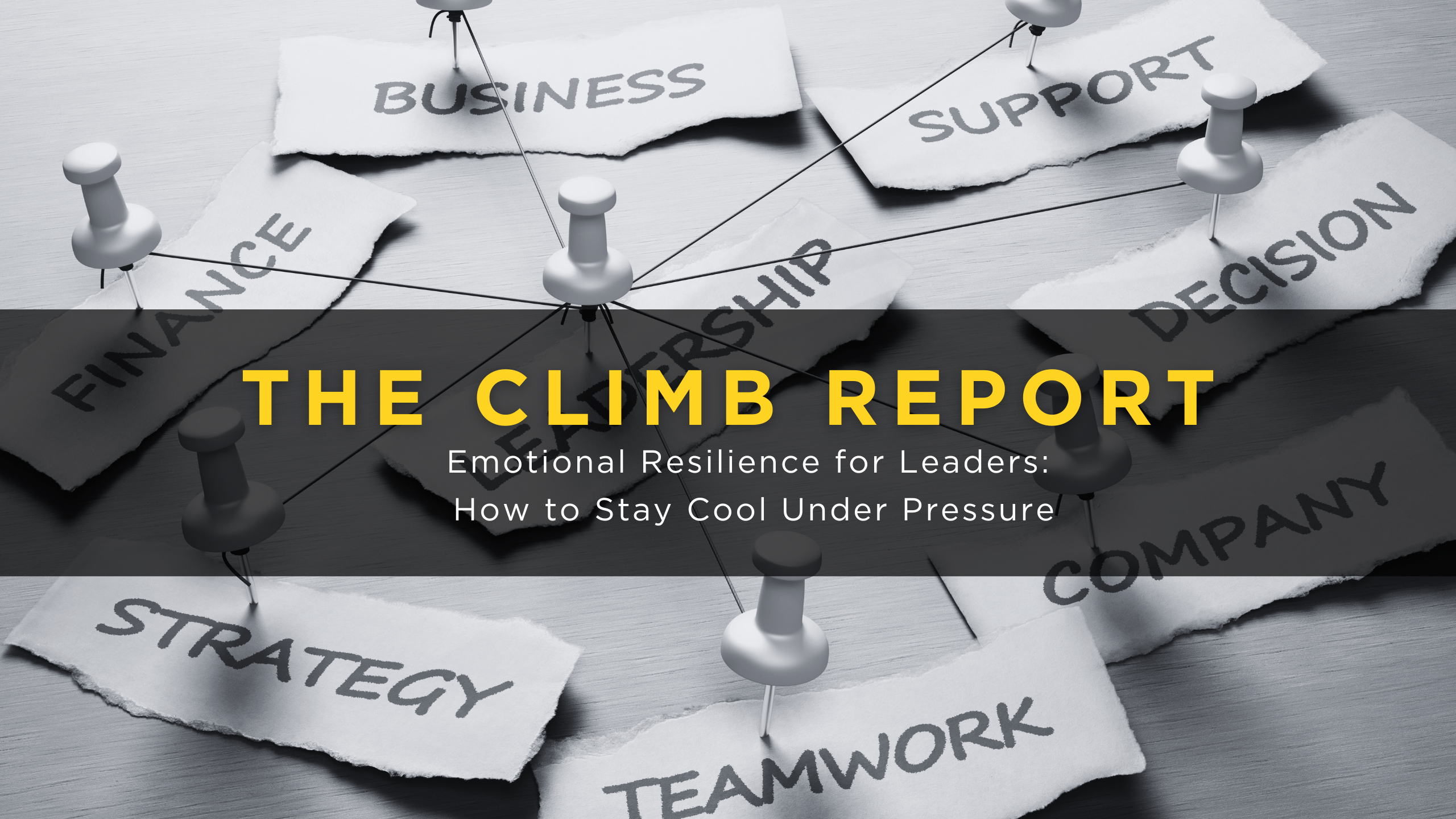
As a leader, staying calm under pressure is a game changer. Whether you’re handling a crisis, giving tough feedback, or making high-stakes decisions, how you manage your emotions impacts the situation. However, emotional resilience doesn’t mean ignoring your feelings, it’s about building strategies that help you stay focused, confident, and clear-headed when things heat up. Here’s how to make that happen.
Building resilience starts with self-awareness. By identifying what stresses you out most, you can prepare to handle it better. Common triggers for leaders include:
When I was working with the Portland Trail Blazers, one assistant coach kept getting frustrated during close games. After tracking his reactions, he realized uncertainty in down-to-the-wire strategy spiked his stress. Once we figured that out, we built a routine that kept him calm and able to make clearer decisions in those big moments.
Try This: Keep a stress journal for one week. Write down when you feel overwhelmed, what triggered it, and how you responded. Tracking this will help you prepare and handle future instances.
Your mindset is everything. Research shows that people who treat stress as a challenge instead of a threat perform better under pressure.
Instead of thinking, "I can’t afford to fail," try changing your mindset to, "This is my chance to show I’ve got this." That mental switch can calm anxiety and help you focus.
When I worked with an NBA rookie before his first playoff game, we practiced reframing exercises. Instead of dwelling on the pressure, he kept saying, "This is my shot to prove I belong here." That mindset helped him stay calm, and he ended up delivering one of his best performances.
Try This: The next time you’re feeling overwhelmed, ask yourself: "What’s one thing I can control right now?" Focusing on action steps keeps you from spiraling.
When pressure rises, your body sometimes reacts before your mind can catch up. A racing heart, shallow breathing, and tense muscles can cloud your thinking and make it harder to make clear and quick decisions.
Try This: Use these quick techniques to reset your body in the moment:
Even when you feel yourself losing control, there are ways to jump back into the right mindset. Quick resets throughout your day can restore focus and energy.
Try This: Add these to your routine:
Preparation leads to confidence. By building a pre-performance routine, you can train your brain to stay calm and ready even when the stakes are high.
I worked with a front-office executive who practiced 10 minutes of visualization every morning before big decisions. He imagined himself delivering tough news or handling tense conversations. That mental rehearsal helped him stay steady when things got real.
Try This: Build a simple routine that combines physical and mental preparation. For example:
Research shows that simply labeling your emotions can reduce their intensity. When you put feelings into words (“I’m feeling anxious” or “I’m frustrated”), your brain shifts from panic mode to a problem-solving mindset.
Try This: When emotions spike, pause and ask: "What am I feeling right now?" Naming the feeling can help you step back and regain control.
You don’t have to power through pressure alone. Trusted mentors, peers, and advisors can offer fresh perspectives and emotional grounding.
When I hit burnout early in my career, it was my mentor who reminded me that taking care of myself was more than just helpful, but also essential. Knowing I had people in my corner kept me steady through tough times.
Try This: Identify 2-3 people you can lean on during high-pressure moments. Whether it’s a coach, mentor, or trusted friend, having that support will strengthen your resilience.
Stress is unavoidable, but you don’t have to carry it with you. Creating a recovery ritual can help you reset your mind and body after tough moments.
Try This: After a challenging meeting or decision, spend 5-10 minutes decompressing. Ideas include:
Final Thought: Emotional Resilience is a Skill You Can Build
Performing at your best isn’t about being perfect; it’s about staying calm, clear-headed, and focused when things get tough. By practicing these strategies consistently, you’ll build the skills to manage pressure, make smart decisions, and lead with confidence. Small steps each day will make a big difference in how you perform when it matters most.
Sources:
https://www.apa.org/topics/resilience/building-your-resilience